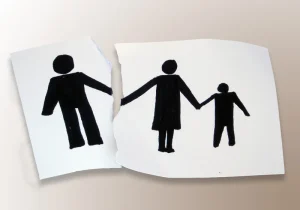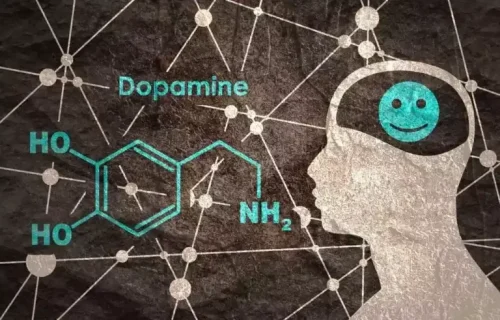
It can also improve communication skills, build healthy relationships, and promote personal growth. Adopting a holistic approach to addiction treatment, art therapy aligns well with other recovery methods, complementing them and offering a more comprehensive healing experience. As we look to the future, the role of art therapy in addiction treatment is likely to continue expanding. Advances in neuroscience are providing new insights into how creative activities impact the brain, potentially leading to more targeted and effective art therapy interventions. Mandala creation is a popular technique for stress reduction and self-reflection. Mandalas, circular designs with repeating patterns, have been used for centuries in various spiritual traditions as tools for meditation and self-discovery.
How Collage Can Help Articulate Complex Feelings

Finally, it’s crucial to have access to the necessary materials for your chosen art therapy activities. An art therapist, who has training in both art and psychology, can offer personalized sessions designed around your unique circumstances. Sometimes, the weight of emotions, experiences, and the recovery journey itself can feel overwhelming. It offers a tangible way to express emotions, visualize thoughts, and explore your inner world – creating a pathway to deeper understanding and healing. It’s not just an empty space; it’s a realm of possibilities where the one in addiction recovery can find solace and expression.
Art Therapy Ideas for Substance Abuse Recovery and Behavioral Health

Artistic projects can range from being invited to draw one picture to full-fledged involvement in an art therapy treatment program. There are countless studies2 that have proven the efficacy of art therapy in relation to mental health and substance abuse disorders. Engaging in activities such as painting, writing, and music serves as therapeutic methods for emotional release. Research indicates that such creative endeavors can help reduce anxiety and enhance emotional well-being.

Approaching Gender Inclusivity in Your Practice

We offer to consider 100 simple exercises that will help you explore your inner self and unleash your creative potential. Perhaps not all of them will be useful or convenient to use specifically for you, but at least some of the list you can use on an ongoing basis. These simple art therapy techniques will help art therapy ideas for adults in recovery you open up new facets of yourself, as well as release stress, tension, and just relax after a hard working day. You don’t need to be an artist to benefit from art therapy. In fact, most of the exercises do not rely on the end result that you create, but on the therapeutic effect of the ritual of the creative process itself. If you are intrigued by the possibility of relaxation through your artistic imagination, then this list of 100 art therapy exercises is just for you.

- More than that, if you have never experienced art therapy for addiction treatment, it’s important to understand the aspect of self-discovery.
- Collaborative murals, group sculptures, or even community art installations can foster a sense of connection and shared purpose among individuals in recovery.
- Hayley has worked in the mental health field for 20 years, helping both clients and clinicians.
Our recovery management and alumni programs support a life-long recovery. Your journey to recovery doesn’t end with day treatment or outpatient, once you’re with Blanchard, you’re always with Blanchard. A prevalent side effect of alcohol abuse or drug addiction is alexithymia, which is the inability to recognize and express feelings that one or others may be experiencing. They are unaware of their emotions and those of others since they are not emotionally aware. They are likewise unable to verbalize their emotions. Whether it’s a bottle cap or a movie ticket, even the smallest of things can take us back to great moments.
Activity #5: Expressive Writing And Poetry
The letter from the future art therapy ideas. Come up with a fictional written message to yourself from yourself from the future detailing the life you want. The drawing will complement the effect perfectly.
Does Alcohol Cause Hot Flashes?
The picture must be drawn, alternately passing the task to the next participant. Exercise develops empathy, goodwill towards each other. For those embarking on their recovery journey, exploring art therapy can open doors to self-discovery and healing that they never knew existed. It’s not about creating museum-worthy masterpieces but about finding one’s voice, processing emotions, and building resilience through creative expression. Addiction https://ecosoberhouse.com/ recovery art is not just about the end product; it’s about the transformative journey of creation.
- Containment activities provide a way for clients to protect, preserve, and honor those parts of themselves that feel vulnerable.
- Draw your feeling at the very moment (type, shape, color is determined by you).
- They provide a constructive means for coping with stress, allowing individuals to process trauma and loss without needing to put their feelings into words.
- Art therapy offers a non-verbal language for expressing complex or painful feelings that may be too difficult to articulate.
- It’s beneficial for those with underlying mental health conditions who may struggle with verbalizing their emotions.
- Discover substance use disorder intervention strategies to support recovery and foster healing for loved ones.
Paint Pouring
This therapy allows them to explore and address issues related to their addiction. Hayley Wilds, MA, LPC, is a licensed counselor, art therapist, and practice owner from Pittsburgh, Pennsylvania. Hayley has worked in the mental health field for 20 years, helping both clients and clinicians. An art therapy literature review published in Frontiers in Psychology (2018) looked at studies conducted between 2000 and 2017 to examine the efficacy of art therapy with adults. Combining art therapy with other treatment modalities can enhance its effectiveness but requires careful coordination. Integrating art therapy with cognitive-behavioral therapy, for instance, can provide a multi-faceted approach to addressing addiction.
From shattered pieces to masterpieces, art therapy unveils a vibrant mosaic of healing and self-discovery for those battling the relentless grip of addiction. The journey of recovery is often fraught with challenges, but within the realm of creative expression lies a powerful tool for transformation and Alcoholics Anonymous growth. Engaging in activities of expressive arts therapy offers numerous benefits that can greatly enhance the recovery process. These activities provide individuals with a safe space to creatively explore their emotions, helping foster a deeper understanding of themselves and their experiences. Painting exercises can be particularly effective for processing trauma and emotions.

